If you’re anything like me, you’ve probably fallen in love with a few breeds along the way. But let me tell you, the Corgipoo is something special. This delightful mix of Welsh Corgi and Poodle is a hidden gem among the many hybrid breeds out there. Did you know that Corgipoos often inherit the herding instinct from their Corgi parents while also having the hypoallergenic coat of the Poodle? It’s the perfect blend of intelligence and affection wrapped in a cute, curly package!
If you’re looking for a furry friend who’s as smart as a whip and loves to cuddle up after a day of play, the Corgipoo might just be your perfect match. This breed isn’t just about looks, though their fluffy coat and bright eyes can instantly melt your heart. They thrive on human interaction and have an uncanny ability to read your mood. So, whether you’re an active family looking for a playful companion or a single pet lover needing a loyal buddy, the Corgipoo could answer your search.
TABLE OF CONTENTS
Corgipoo Quick Breed Summary
The Origin Story of the Corgipoo
The Corgipoo or Corgidoodle is a delightful blend of the Pembroke Welsh Corgi and the Poodle. This breed emerged from the desire to combine the intelligence and hypoallergenic qualities of the Poodle with the playful, herding instincts of the Welsh Corgi. While the exact timeline of its origin isn’t well-documented, it’s believed that this hybrid breed gained popularity during the surge of designer dogs in the late 20th century. This period saw a growing interest in crossing different breeds to create new hybrids that combined favorable traits from both parents.
Understanding the Parent Breeds
- Welsh Corgi: Known for its herding abilities and charming personality, the Welsh Corgi has deep historical roots in Wales. The Pembroke Welsh Corgi is closely associated with British royalty. The Pembroke is famous for its smaller size, short legs, and joyful demeanor. The Cardigan Welsh Corgi, on the other hand, is slightly larger with a longer body and tail, contributing versatility and herding instincts to the Corgipoo.
- Poodle: The Poodle, originally bred as a water retriever in Germany, is famous for its intelligence, trainability, and hypoallergenic coat. Poodles come in Standard, Miniature, and Toy sizes, allowing breeders to influence the size of the Corgipoo by selecting different Poodle varieties.
Both Corgis and Poodles are popular dog breeds. The Corgi is Queen Elizabeth II’s favorite breed having been part of the royal family since 1933, whilst the Poodle has been a proud top ten most popular breed in the US for over 20 years.
The Purpose Behind the Breed
The Corgipoo was bred to offer a loving, intelligent companion that combines the best traits of both parent breeds. This hybrid aims to be an ideal family pet with a manageable size, low shedding, and an engaging temperament. Corgipoos also inherit the intelligence and trainability of both the Corgi and Poodle, making them quick learners in obedience training.
Recognition and Popularity
While not officially recognized as a breed by major kennel clubs, the Corgipoo has captured the hearts of many, thanks to its endearing qualities. It is often classified under designer dogs, which are not recognized breeds but are still popular due to their distinctive traits. The Corgipoo’s rise in popularity highlights the growing interest in hybrid breeds that offer unique combinations of characteristics suited to a variety of lifestyles
Kennel Club Recognition
As a designer dog, the Corgipoo isn’t recognized by the American Kennel Club or any international kennel club. Although both parent breeds are purebred, the hybrid nature and diverse characteristics of their offspring prevent the Corgipoo from being classified as its own distinct breed.
However, the Dog Registry of America and the Designer Breed Registry recognize the Corgi Poodle Mix as a breed.
Despite not being recognized by major kennel clubs, Corgipoos still have a huge fan base due to their irresistible charm! If you’re already captivated by the idea of bringing one into your home, check out these great adoption organizations where you might find your perfect Corgipoo:
- Poo-Mix Rescue
- Corgi Rescue
- Texas Corgi Rescue
The Physical Traits of the Corgipoo
Size and Build
The Corgipoo typically stands 10 to 15 inches tall and weighs between 12 and 30 pounds. The dog’s actual size depends on the specific Corgi and Poodle breeds involved in its lineage. Corgipoos tend to have a sturdy, compact build with short to medium-length legs, inheriting their body shape from both parents.
Coat Type
The coat of a Corgipoo is usually soft and can range from wavy to curly, thanks to the influence of the Poodle parent. Their fur is often low-shedding, making them a popular choice for people with mild allergies. Regular grooming is necessary to maintain the coat’s quality and prevent matting.
Colors
Corgipoos come in a delightful range of colors, reflecting the diversity of their parent breeds. Common shades include black, brown, cream, red, and white, with some dogs having a mix of multiple shades. Combining colors often results in striking patterns that add to their charm.
Other Distinct Appearance
Besides their distinctive coat, Corgipoos often inherit expressive eyes and a friendly smile. Their ears can be upright or floppy, depending on which parent they take after. Their overall appearance, from their bright eyes to their wagging tails, often showcases a delightful mix of both Corgi and Poodle features, adding to their playful and affectionate demeanor.
Corgipoo Personality and Temperament
Playful and Energetic
Corgipoos are known for their playful and energetic nature, always eager to join in on a game or run around the yard. Their lively spirit stems from both the Corgi and Poodle, making them ideal companions for families who enjoy an active lifestyle. Expect a Corgipoo to keep you on your toes, whether it’s fetching a ball, going for walks, or playing tug-of-war.
Affectionate and Loyal
If you’re looking for a loving companion, Corgipoos are the perfect match. They are deeply affectionate and thrive on human interaction, often following their owners around the house. Their loyalty is unmatched, and they form strong bonds with their families, showing endless love and affection. You can count on a Corgipoo to snuggle up beside you after a long day.
Intelligent and Trainable
With the combined intelligence of the Poodle and the Corgi, Corgipoos are quick learners who respond well to training. They enjoy mental stimulation and excel in activities that challenge their problem-solving skills. Their eagerness to please makes them receptive to positive reinforcement, making training sessions enjoyable for both dog and owner.
Protective with a Quirky Side
While they may not have the imposing presence of larger breeds, Corgipoos can be surprisingly protective. They tend to be alert and will bark to alert you of strangers. On the quirkier side, their expressive faces and amusing antics can bring a smile to anyone’s face, with their herding instincts sometimes prompting them to herd other pets or family members.
Overall, the Corgipoo’s combination of intelligence, affection, and playful spirit makes them a delightful addition to any family.
Caring for Your Corgipoo
Feeding
Corgipoos benefit from a high-quality diet that suits their age, size, and energy levels. Puppies require nutrient-rich food for growth, while adults need balanced meals to maintain optimal health. Providing two controlled portions daily helps regulate their intake and prevents overeating, which can lead to weight gain. Choose dog food with appropriate protein levels and essential fatty acids to support their coat health.
Monitoring your Corgipoo’s weight is important, as this breed can be prone to obesity if overfed or under-exercised. Given their small size, Corgipoos are susceptible to obesity, so choosing a kibble specifically formulated for small breeds is crucial.
Regularly check with your vet to ensure their diet aligns with their health needs and adjust accordingly. Treats are great for training but should be moderated to avoid unnecessary calories.
Providing your dog with a high-quality, nutritious, and varied diet is key to maintaining its digestive health and bolstering its immune system. Premium dry food offers a convenient and effective way to supply your furry companion with the right balance of protein, vitamins, and minerals.
For a Corgipoo, one cup of food divided into two meals daily should provide ample energy for their daily activities.
Grooming
Due to the poodle’s influence, the corgipoo’s coat often has a low-shedding quality, but regular grooming is essential to keep it looking its best. Brushing their coat a few times a week prevents tangles and mats and helps distribute natural oils for a healthy shine. Professional grooming every 6-8 weeks is recommended to maintain their coat and keep them looking tidy.
In addition to coat care, remember to clean your Corgipoo’s ears regularly to prevent infections, especially if they have floppy ears. Dental hygiene is equally important; daily brushing or providing dental chews can help reduce plaque buildup. Don’t forget to trim their nails regularly to prevent discomfort or injury from overgrown nails.
Exercise and Mental Stimulation
Corgipoos are lively dogs that require daily exercise to burn off their energy. A couple of 30-minute walks each day and interactive play sessions help keep them physically fit and mentally stimulated. Due to their herding instincts and intelligence, they benefit from agility exercises, puzzle toys, and games that challenge their problem-solving skills.
Providing enough mental stimulation is crucial for Corgipoos, as boredom can lead to destructive behavior. A garden can be a great asset for this breed, providing space for a quick run or playing games like fetch, swimming, or food puzzles. Rotate their toys and engage them in interactive games to keep their minds active. Training sessions focusing on new tricks or commands also serve as excellent mental workouts for these intelligent dogs.
Socialization and Training
To raise a well-rounded Corgipoo, it’s essential to start socialization early. Exposing them to various people, places, and other animals builds their confidence and reduces the likelihood of fear-based behaviors. Puppy classes are an excellent way to introduce them to new environments in a controlled setting, helping them become accustomed to different stimuli.
Positive reinforcement is key when it comes to training. Corgipoos respond well to rewards-based training methods, which leverage treats and praise to encourage desired behavior. Consistency and patience are essential, as repetition helps reinforce commands and good manners. Proper training and socialization from an early age help ensure your Corgipoo grows into a friendly, well-behaved companion. This sociable breed enjoys meeting new people and animals, so letting them off-leash at the dog park or in your neighborhood shouldn’t be an issue.
Training your Corgipoo shouldn’t be difficult if you start early and remain consistent. Both parent breeds are exceptionally intelligent and respond well to positive reinforcement. Poodles, in particular, are quick learners and thrive on pleasing their owners. Short and engaging training sessions will prevent your pup from losing interest.
Common Health Issues in Corgipoos
Hip Dysplasia
Hip dysplasia is a common genetic condition that affects many breeds, including the Corgipoo. This condition occurs when the hip joint doesn’t develop properly, causing discomfort and potentially leading to arthritis over time. Regular vet check-ups, a healthy diet, and maintaining an ideal weight can help minimize the risks and impact of hip dysplasia. If you notice your Corgipoo limping or showing signs of pain while walking, it’s crucial to consult a veterinarian for appropriate diagnosis and treatment.
Progressive Retinal Atrophy (PRA)
PRA is an inherited eye condition that can lead to progressive vision loss in dogs, eventually causing blindness. While PRA has no cure, responsible breeding practices that include genetic testing can help reduce the risk. Early detection through regular eye exams is essential to managing this condition, allowing you to make adjustments to your Corgipoo’s environment as their vision deteriorates.
Intervertebral Disc Disease (IVDD)
Due to their Corgi ancestry, Corgipoos may be prone to Intervertebral Disc Disease (IVDD), a condition that affects the spine. It can cause pain, mobility issues, and even paralysis in severe cases. To minimize the risk, it’s important to prevent excessive jumping or activities that put stress on the spine. Providing ramps or steps can help your Corgipoo move safely and comfortably.
Obesity
Corgipoos are prone to obesity, which can exacerbate other health issues like hip dysplasia and IVDD. A balanced diet and regular exercise are crucial to maintaining their weight. Consult with your vet to establish the right feeding plan and exercise regimen for your Corgipoo to maintain their health and vitality.
The Cost of Owning a Corgipoo
Initial Costs
When considering the initial costs of owning a Corgipoo, you should be prepared for expenses related to acquiring the puppy and essential items for its care:
- Purchase Price: Depending on breeder reputation and lineage, expect to pay between $500 and $2,000 for a Corgipoo puppy.
- Vaccinations and Microchipping: First-year veterinary care, including vaccinations, microchipping, and spaying/neutering, can cost around $300 to $500.
- Supplies: Essential supplies like a crate, bed, leash, collar, toys, and grooming tools will cost about $200 to $400.
Ongoing Costs
Maintaining the health and happiness of your Corgipoo will involve regular ongoing costs:
- Food: Quality dog food and treats typically range from $30 to $50 monthly.
- Routine Vet Care: Annual vet check-ups, flea/tick preventives, and vaccinations can cost $300 to $500 per year.
- Grooming: Professional grooming services cost approximately $50 to $100 per session, with grooming typically needed every 6-8 weeks.
- Training and Socialization: Puppy classes and obedience training, depending on the program, may cost $100 to $300.
- Pet Insurance: Pet insurance plans vary, but basic coverage usually costs $20 per month, depending on your location and chosen coverage.
Emergency Costs
Unexpected health issues or accidents can result in emergency costs, which may include:
- Emergency Vet Visits: Costs can range from $200 to $1,000 or more, depending on the severity of the condition.
- Surgery and Hospitalization: Major surgeries and extended hospitalization can easily cost $1,000 to $5,000 or more, depending on the procedure and care required.
Being financially prepared for these potential expenses is crucial to ensure you can provide the best possible care for your Corgipoo.
FAQs About Corgipoos
Are Corgipoos good for first-time dog owners?
Corgipoos can be a good choice for first-time dog owners due to their friendly nature and intelligence. They typically respond well to training, especially with positive reinforcement. However, they do require consistent grooming and regular exercise to keep them happy and healthy. Their energetic and playful demeanor means they need an owner who can commit to regular playtime and mental stimulation. If you’re prepared for these needs, a Corgipoo can make a wonderful companion.
Do Corgipoos shed a lot?
Corgipoos generally shed less than some other breeds due to their Poodle lineage, which often brings a low-shedding coat. However, the amount of shedding can vary depending on which parent breed they take after more. Regular grooming, including brushing and professional trims, can help manage shedding and keep their coat in good condition. If you’re concerned about shedding due to allergies, spending time with a Corgipoo before adopting one is a good idea. This will help you gauge your sensitivity to their specific coat type.
How much time does a Corgipoo need to be left alone?
Corgipoos thrive on human companionship and generally don’t enjoy being alone for long periods. If left alone for too long, they can become anxious or bored, leading to destructive behavior. Ideally, they shouldn’t be left alone for more than 4-6 hours. Providing toys and puzzles can help keep them occupied if they must be left alone. Training them to tolerate brief separations from a young age can also help.
How adaptable are Corgipoos to different living environments?
Corgipoos can adapt well to various living environments, including apartments and houses with yards. Their small to medium size makes them suitable for urban living, provided they exercise regularly. They enjoy having a space to run and play, so a yard is a bonus, but not a necessity. Their primary need is regular interaction and mental stimulation. They can thrive in most environments if they receive sufficient attention and exercise.
Are Corgipoos good with children?
Corgipoos are generally good with children due to their friendly and playful nature. They typically enjoy engaging in activities with kids and can be gentle with them. However, it’s important to supervise interactions between dogs and young children to ensure safety and teach proper handling. Early socialization and training can help Corgipoos learn to be well-mannered around kids. As with any breed, teaching children how to interact with dogs respectfully is essential for fostering a positive relationship.
So, Is the Corgipoo Right for You?
Choosing the right dog breed for your lifestyle is a crucial decision, and it’s important to find a pet that aligns with your needs and expectations. The Corgipoo, with its delightful blend of intelligence, affection, and energy, is a wonderful companion for many, but it’s not suited for everyone. Here’s a quick guide to help you determine if a Corgipoo is the perfect match for you:
Corgipoos Are For:
- Families and individuals seeking a playful, energetic companion who thrives on human interaction.
- Those who enjoy spending time outdoors and can provide regular exercise to match the Corgipoo’s lively personality.
- People who appreciate intelligent dogs that respond well to training and mental stimulation.
- Pet owners who can commit to regular grooming and coat care to maintain the Corgipoo’s low-shedding coat.
- Families with children, provided that interactions are supervised and the dog is properly socialized.
Corgipoos Are NOT For:
- Individuals who cannot commit to regular grooming and coat maintenance.
- Owners who cannot provide consistent exercise and mental stimulation, leading to potential boredom and behavioral issues.
- Those who frequently leave their pets alone for extended periods, as Corgipoos thrive on human companionship and can develop separation anxiety.
- People seeking a low-energy or low-maintenance dog that requires minimal interaction.
- Individuals who are unprepared for the potential health concerns associated with this breed and cannot provide appropriate veterinary care.
The Corgipoo is a delightful mix of playfulness, intelligence, and affection, making them a wonderful companion for those who can meet their needs. With their lively personality and desire for human interaction, they bring joy and companionship to the right household. However, they do require a commitment to regular grooming, exercise, and mental stimulation. If you’re prepared to embrace their lively spirit and provide the care they need, a Corgipoo could be the perfect addition to your family. Consider all aspects before making your decision to ensure a happy, lifelong partnership with your new furry friend.
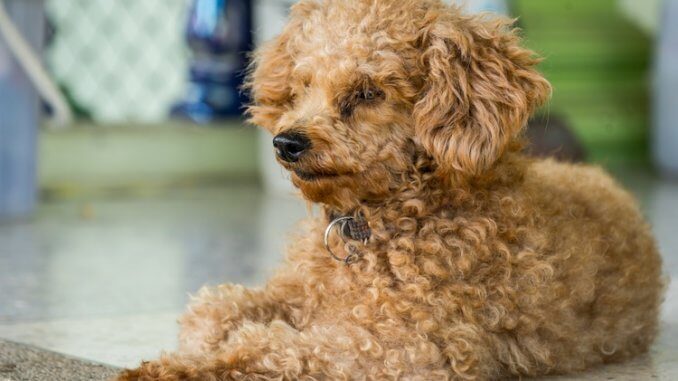
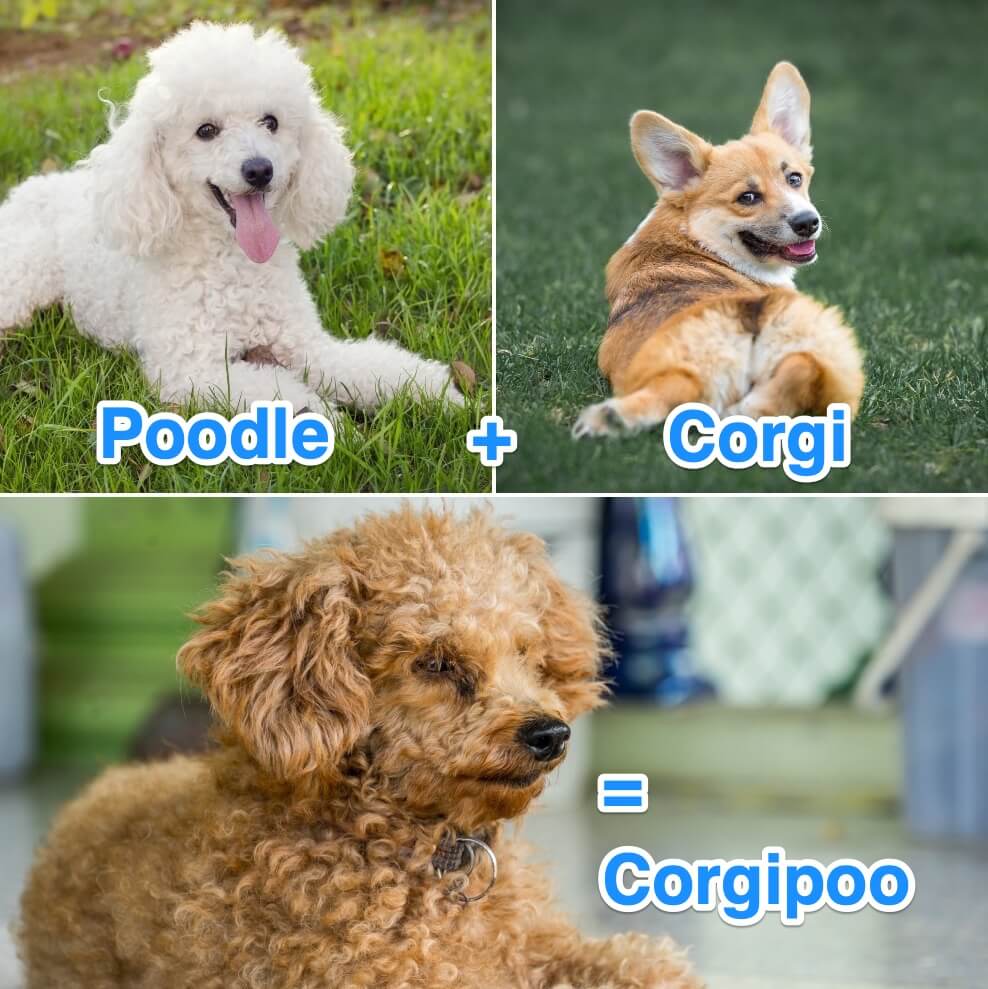
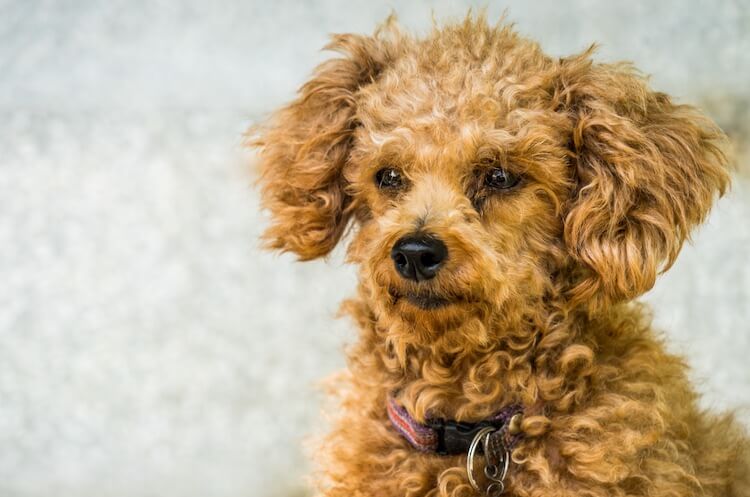


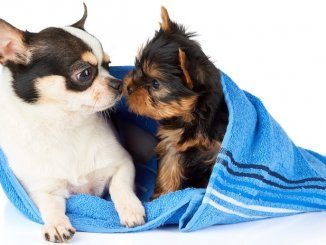
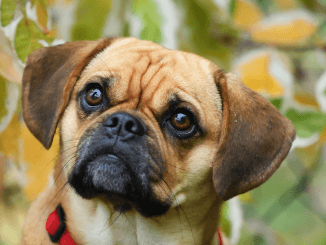
Be the first to comment